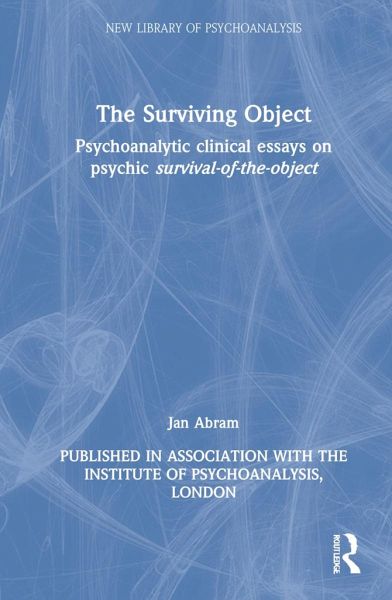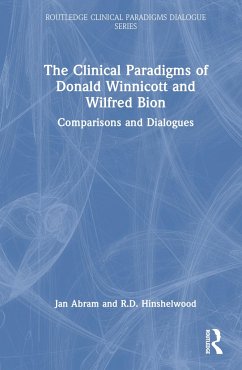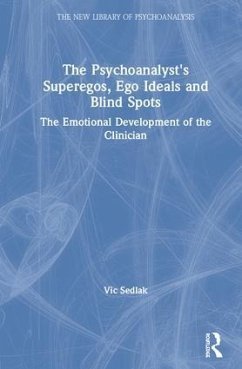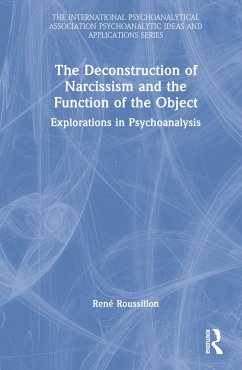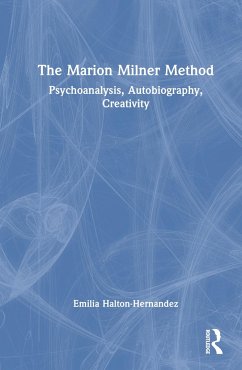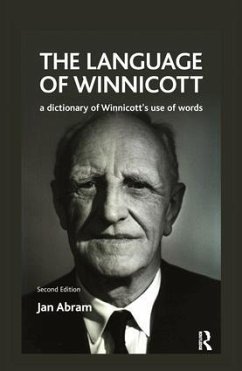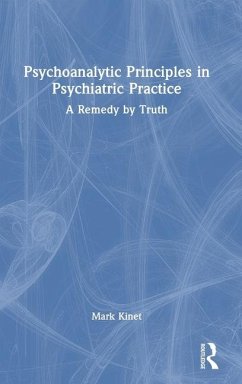Jan Abram
Gebundenes Buch
The Surviving Object
Psychoanalytic clinical essays on psychic survival-of-the-object
Versandkostenfrei!
Versandfertig in 1-2 Wochen
Weitere Ausgaben:

PAYBACK Punkte
80 °P sammeln!





In this book, Abram proposes and elaborates the dual concept of an intrapsychic surviving and non surviving object and examines how psychic survival-of-the-object places the early m/Other at the centre of the nascent psyche before innate factors are relevant.
Jan Abram is a Training and Supervising Psychoanalyst of the British Psychoanalytical Society and Visiting Professor of the Psychoanalysis Unit, University College, London. She is Vice President of the European Psychoanalytic Federation. She has published several books and articles notably: The Language of Winnicott (1st edition 1996; 2nd edition 2007), Outstanding Academic Book of the year (1997); Donald Winnicott Today (2013); The Clinical Paradigms of Melanie Klein and Donald Winnicott: comparisons and dialogues (2018 with co-author R. D. Hinshelwood).
Produktdetails
- Verlag: Routledge
- Seitenzahl: 212
- Erscheinungstermin: 28. September 2021
- Englisch
- Abmessung: 240mm x 161mm x 16mm
- Gewicht: 487g
- ISBN-13: 9781032075235
- ISBN-10: 1032075236
- Artikelnr.: 62223741
Herstellerkennzeichnung
Libri GmbH
Europaallee 1
36244 Bad Hersfeld
gpsr@libri.de
"In her new book, Jan Abram continues the impressive endeavour to explore, discuss and develop the work of D. W. Winnicott. This time her personal voice is stronger. By offering the reader an Ariadne thread, through her clinical innovation of the intrapsychic surviving and non surviving objects, she takes the reader on a journey through the complexity of Winnicott's work, and her own reflections of its clinical and theoretical implications. She includes an abundance of examples from her clinical work, and a continuous dialogue with other psychoanalytic writers. This makes Abram's contribution not only helpful to the understanding of Winnicott, but also to several of the most important discussions in contemporary psychoanalysis." - Sølvi
Mehr anzeigen
Kristiansen, Training and Supervising Analyst; Past President, The Norwegian Psychoanalytic Society
"Jan Abram has made this marvellous achievement showing that DW Winnicott's two-person psychology is three-dimensional, following her inspiring meeting with André Green. To illustrate her psychoanalytic journey, she makes heuristic use of Japanese Ukiyo-e so that readers may enjoy viewing the transient and transitional object together while learning from the author, and in the end, shall realize the object has survived intrapsychically." - Osamu Kitayama, Training and Supervising Analyst & Past President Japan Psychoanalytic Society
"In The Surviving Object, Jan Abram, the foremost Winnicott scholar writing today, discusses the way Winnicott reinvents the meanings of words as he goes, and uses the unique language he creates to convey understandings that analytic writing has never previously held. In this new work, she presents her own clinical work, which is strongly rooted in Winnicott's thinking, but is uniquely her own. She speaks with her patients in a way that is sometimes calming, sometimes confrontational, sometimes stunningly insightful, but always profoundly personal and humane. This is an extraordinary book that must not be missed." - Thomas Ogden, author most recently of Reclaiming Unlived Life and Creative Readings: Essays on Seminal Analytic Works.
"The Surviving Object is a significant milestone in understanding the richness of Winnicott's contributions to psychoanalysis. Jan Abram, a leading exponent of Winnicott's work, traces the evolution of his central concepts, with the detailed grasp of them for which she is known. She also traces how her own understanding of them has developed over time and found expression in her clinical work. Winnicott's ideas are carried forward in the process, and their links to French psychoanalysis in particular are valuably explored. This book is both an extremely useful survey of Winnicott's thought and a creative elaboration of it." - Michael Parsons, author of Living Psychoanalysis: From Theory to Experience
"Jan Abram has made this marvellous achievement showing that DW Winnicott's two-person psychology is three-dimensional, following her inspiring meeting with André Green. To illustrate her psychoanalytic journey, she makes heuristic use of Japanese Ukiyo-e so that readers may enjoy viewing the transient and transitional object together while learning from the author, and in the end, shall realize the object has survived intrapsychically." - Osamu Kitayama, Training and Supervising Analyst & Past President Japan Psychoanalytic Society
"In The Surviving Object, Jan Abram, the foremost Winnicott scholar writing today, discusses the way Winnicott reinvents the meanings of words as he goes, and uses the unique language he creates to convey understandings that analytic writing has never previously held. In this new work, she presents her own clinical work, which is strongly rooted in Winnicott's thinking, but is uniquely her own. She speaks with her patients in a way that is sometimes calming, sometimes confrontational, sometimes stunningly insightful, but always profoundly personal and humane. This is an extraordinary book that must not be missed." - Thomas Ogden, author most recently of Reclaiming Unlived Life and Creative Readings: Essays on Seminal Analytic Works.
"The Surviving Object is a significant milestone in understanding the richness of Winnicott's contributions to psychoanalysis. Jan Abram, a leading exponent of Winnicott's work, traces the evolution of his central concepts, with the detailed grasp of them for which she is known. She also traces how her own understanding of them has developed over time and found expression in her clinical work. Winnicott's ideas are carried forward in the process, and their links to French psychoanalysis in particular are valuably explored. This book is both an extremely useful survey of Winnicott's thought and a creative elaboration of it." - Michael Parsons, author of Living Psychoanalysis: From Theory to Experience
Schließen
Für dieses Produkt wurde noch keine Bewertung abgegeben. Wir würden uns sehr freuen, wenn du die erste Bewertung schreibst!
Eine Bewertung schreiben
Eine Bewertung schreiben
Andere Kunden interessierten sich für



